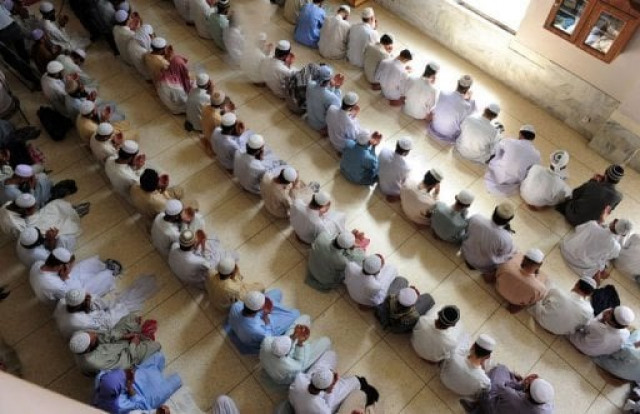Extremist violence: Engage extremist leaders, monitor them
Counter Terrorism Department report seeks district, mohalla-level peace committees to keep a watch over usual suspects

Extremist violence: Engage extremist leaders, monitor them
The government should talk with leaders of parties and organisations suspected of involvement in extremist activities, says a recent report issued by the Counter Terrorism Department.
In the short term, the report suggests law enforcement personnel from district police, Special Branch and the CTD as well as district administration should be included in teams formed to hold talks with such organisations.
In the long-run, the report says there is a need for a close watch on clerics, mosques and seminaries suspected of promoting extremism.
The authors say there is a need for surveillance of potential extremist leaders/preachers through district-level peace committees. It says these committees can be assigned the task of keeping a check on activities of mosques, seminaries and clerics suspected of sponsoring extremism and sectarianism.
It says most people visiting the mosques for Friday prayers do not approve of ‘provocative sermons’ delivered by some prayer leaders but they don’t raise their voices out of fear.
These people, it says, can be engaged through mohalla-level committees.
“We should encourage them and provide them an opportunity to share information on agents of sectarian or extremist mischief with us,” the report reads.
The report says monitoring the seminaries is not a huge or formidable task as only a handful of them are involved in extremist activities.
The report suggests that along the lines of the policy adopted in mosques in cantonments, Ulema Boards be formed to review the contents of Friday sermons for provocative and hate speech.
It says that the Barelvi clerics who protested against the court verdict in Salmaan Taseer’s murder case had wanted to demonstrate their street power.
It says that some of these clerics had arranged processions and delivered provocative sermons at Friday congregations to put pressure on the Appellate Court. It suggests that these elements are expected to continue such activities.
The report says that no concessions should be offered to elements exploiting religious and sectarian differences in the society. If not checked in time, it adds, such elements end up finding funds and manpower in support of their activities and become a law and order problem. The report is addressed to the inspector general of Punjab police, the chief secretary, the home secretary and the Secretary to the chief minister.
Published in The Express Tribune, November 12th, 2011.



















COMMENTS
Comments are moderated and generally will be posted if they are on-topic and not abusive.
For more information, please see our Comments FAQ